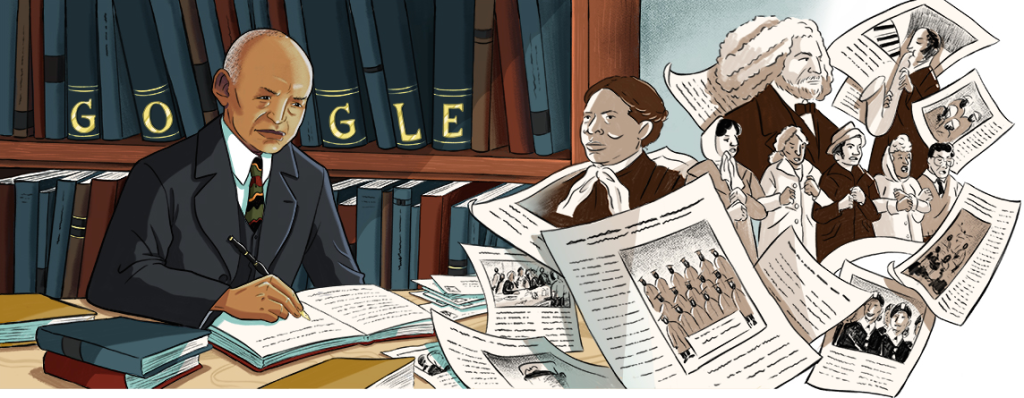Woodson honored by Google
Published 9:52 am Tuesday, February 6, 2018

- Carter G. Woodson, known as the father of Black History, was honored by a Google Doodle on Thursday (Google 2018).
Carter G. Woodson, known as the father of Black History, was honored by Google with a Google Doodle on Thursday, the first day of Black History Month.
Shannon Wright, a Richmond-based illustrator, worked on the doodle. She said she didn’t know what she would be illustrating until after finishing paperwork.
“They said, ‘Hey, we’re opening up Black History Month; this is not only representing the person,’ because they always do Google Doodles that, like, represent a person, their birthday or something like that, but it’s going to open up Black History Month, so I was like, ‘Oh, ok,’” Wright said with a laugh. “… I’m still amazed that it happened.”
Wright said Google came up with the idea to do the doodle on Woodson. She said she had no idea who he was before starting the graphic.
“I did some research before I got started because I wanted to know who I was doing the piece on, what were like very iconic things to him,” Wright said. “… I read a lot of articles about him and at the end of it I was like, ‘Wow, I did not know about this guy at all.’ The fact that he is credited as like the father of Black History … I didn’t even know the guy that, like, got everything in gear and was the catalyst to everything else.”
Charles White, the editor of the Buckingham County-based African-American newspaper The Informant and a historian, said he started teaching at the Carter G. Woodson High School in Buckingham in 1955.
“Woodson spent his first 17 years here in Buckingham and then went to West Virginia,” White said.
He said he went to Huntington, West Virginia, and discovered they had an African-American high school, “which shocked him.”
“He had mainly been self-taught because he had a little bit of elementary school, and he had an uncle who was a teacher that taught him,” White said. “… He was quite a reader.”
He said Woodson went to work in the mines in West Virginia and went to high school at the same time.
“He got his high school diploma in two years,” White said. “Then he went to Berea College, which was the only college in the former border states that had a black college.”
He said Berea College accepted African-Americans. Woodson got his master’s degree from the University of Chicago.
“He would later on get his Ph.D. from Harvard University,” White said. “He was the second black person to get a Ph.D. from Harvard.”
He said Woodson and W.E.B. Dubois were the first two African-Americans to graduate from Harvard.
“They decided what they were going to do with that Ph.D., so Dubois said he was going to fight discrimination and segregation,” White said. “… Woodson said he’d had some experiences with his professors trying to point out to him that blacks had no history. Woodson knew better.”
He said he decided to devote his life to working on that.
“In 1915 he organized what is now known as the Afro-American Life and History Society,” White said. “In 1926 he thought that something had to be done about getting black history to children, so he instituted what was then called Black History Week, and that’s what I grew up with. It remained that until 1974.”
He said some students at Kip State University decided they’d make a month out of it.
“Woodson’s organization picked up on that, and in 1975 they officially said that Black History Week would now be Black History Month,” White said. “It was first announced at the Frances Redwood Center in New Canton. That was on the day that we dedicated the marker at (Woodson’s) home site.”





